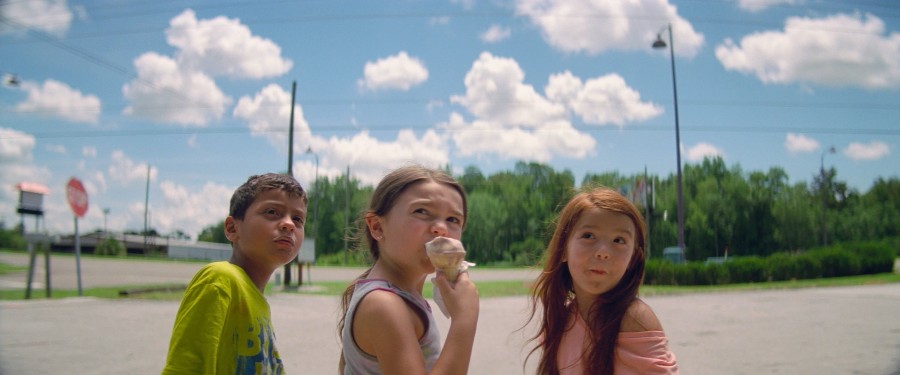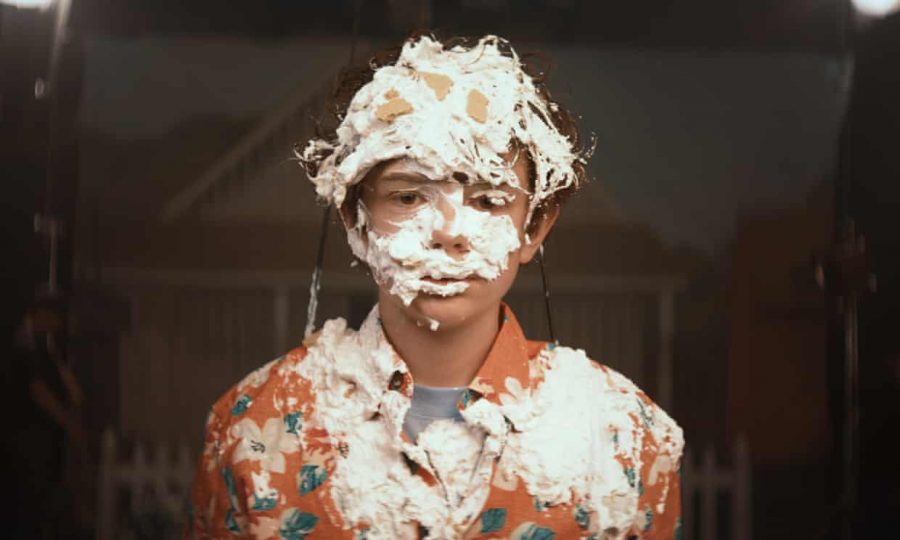Shia LaBeouf unlike you’ve ever seen him shines in autobiographical ‘Honey Boy’
Natasha Braier/Courtesy of Sundance Institute
Noah Jupe appears as Otis Lort, a fictional version of Shia LaBeouf, in the film “Honey Boy.”
Shia LaBeouf, the writer of the autobiographical film “Honey Boy,” compared making the movie to an exorcism.
“I had a flashlight and was rummaging through the attics of my soul trying to figure stuff out, figuring my past out,” LaBeouf said in an interview with Variety. “You excise demons. This felt a little bit like an exorcism.”
Upon viewing his magnificent movie “Honey Boy,” which aired at the New Orleans Film Festival on Sunday, that statement doesn’t feel like an exaggeration. The film is unflinchingly honest and unearths an abusive past most fans of the child-actor-turned-troubled-artist probably never knew about.
“Honey Boy” recounts the childhood of Otis Lort, a stand-in for LaBeouf who rose to fame as a Disney Channel film and television star. The actor, subjected to 4 a.m. set calls and seedy motels, gets by with the help of his father and chaperone.
The trauma LaBeouf excises in “Honey Boy” stems from the ex-rodeo clown, sex offender and alcoholic father who pockets his son’s per diem money and manipulates him into thinking he is vital to his son’s success. LaBeouf plays the father himself (hence the catharsis).
Not unrecognizable but certainly disguised with a receding hairline, paunch, circular glasses, and wardrobe of overalls and bandanas, LaBeouf is a force of nature in the role. Each word of abuse and act of admonishment sends the viewer deeper into the world and clearly damaged psyche of LaBeouf.
The role reversal, where LaBeouf plays his childhood abuser, hurling expletives and wallops at his movie proxy, is no gimmick. As the moments tick by in this tightly-but-patiently-paced 90-minute film, the label “exorcism” makes more and more sense.
Though most of the screen-time is occupied by LaBeouf, “Honey Boy” revolves around the world of Otis, a dynamic Noah Jupe, the child actor best known for his equally impressive performance in “A Quiet Place.”
When the film forfeits its preteen protagonist and flashes ahead to a traumatized and bitter 19-year-old Otis, played by the always-good Lucas Hedges, it loses some of its narrative heft and spends a little too much time with a vexing chicken metaphor that reads like an inside joke LaBeouf tells. While the frame narrative and future timeline are important to the overall project, the film’s eyes and heart belong to young Otis.
The way “Honey Boy” captures the intricacies of childhood feels reminiscent of 2017’s “The Florida Project,” a gorgeous film which shares the motel setting and adolescent lens. That lens is brought to life by Alma Har’el, who directed the documentary “Bombay Beach” and whose style blends documentary with fiction.

Another film from the perspective of children, “The Florida Project” played two years ago at the New Orleans Film Festival. Read The Hullabaloo’s review.
In “Honey Boy” she makes the switch, marrying fiction with documentary, lending LaBeouf the authenticity his autobiographical project deserves and thrives on. The film succeeds with little moments — an outstretched hand grasped then rejected, a gentle caress and the way in which LaBeouf calls his movie son, “honey boy,” sometimes with tenderness, other times with vitriol, oftentimes with both.
As the credits roll, one can sense the relief LaBeouf must have felt making this film — the fact that it is so compelling and beautiful is only an added bonus. The real treat is seeing an artist, misunderstood and holding decades of pain, let go and gain power over his own story.
Your donation will support the student journalists of Tulane University. Your contribution will allow us to purchase equipment and cover our annual website hosting costs.



